 Tìm kiếm
Tìm kiếm
Chương VIII Hiến pháp 2013: Tòa án nhân dân, viện kiểm sát nhân dân
| Số hiệu: | khongso | Loại văn bản: | Hiến pháp |
| Nơi ban hành: | Quốc hội | Người ký: | Nguyễn Sinh Hùng |
| Ngày ban hành: | 28/11/2013 | Ngày hiệu lực: | 01/01/2014 |
| Ngày công báo: | 29/12/2013 | Số công báo: | Từ số 1003 đến số 1004 |
| Lĩnh vực: | Bộ máy hành chính, Quyền dân sự | Tình trạng: | Còn hiệu lực |
TÓM TẮT VĂN BẢN
Một số điểm mới trong Hiến pháp 2013
Ngày 28/11/2013, Quốc hội đã thông qua Hiến pháp 2013 và Nghị quyết 64/2013/QH13 quy định một số điểm thi hành Hiến pháp 2013.
Theo đó, Hiến pháp 2013 có hiệu lực kể từ ngày 01/01/2014 và có nhiều điểm mới so với Hiến pháp 1992 (Chỉ giữ nguyên 7 điều, bổ sung 12 điều mới và sửa đổi 101 điều), đương cử như:
- Chương X là quy định mới hoàn toàn về Hội đồng bầu cử quốc gia, Kiểm toán nhà nước;
- Ghi nhận quyền sống; quy định quyền hiến mô, bộ phận cơ thể người, hiến xác;
- Mọi người có quyền tự do kinh doanh trong những ngành nghề mà pháp luật không cấm (đây là quy định tiến bộ so với Hiến pháp 1992);
Đồng thời quy định, các văn bản pháp luật ban hành trước ngày 01/01/2014 phải được rà soát lại để sửa đổi, bổ sung hoặc ban hành mới cho phù hợp với Hiến pháp 2013.
Việc sửa đổi Luật tổ chức Quốc hội, Chính phủ, Tòa án nhân dân; ban hành mới Luật tổ chức chính quyền địa phương… phải được trình Quốc hội xem xét thông qua chậm nhất vào tháng 10/2015.
Văn bản tiếng việt
Văn bản tiếng anh
1. Tòa án nhân dân là cơ quan xét xử của nước Cộng hòa xã hội chủ nghĩa Việt Nam, thực hiện quyền tư pháp.
2. Tòa án nhân dân gồm Tòa án nhân dân tối cao và các Tòa án khác do luật định.
3. Tòa án nhân dân có nhiệm vụ bảo vệ công lý, bảo vệ quyền con người, quyền công dân, bảo vệ chế độ xã hội chủ nghĩa, bảo vệ lợi ích của Nhà nước, quyền và lợi ích hợp pháp của tổ chức, cá nhân.
1. Việc xét xử sơ thẩm của Tòa án nhân dân có Hội thẩm tham gia, trừ trường hợp xét xử theo thủ tục rút gọn.
2. Thẩm phán, Hội thẩm xét xử độc lập và chỉ tuân theo pháp luật; nghiêm cấm cơ quan, tổ chức, cá nhân can thiệp vào việc xét xử của Thẩm phán, Hội thẩm.
3. Tòa án nhân dân xét xử công khai. Trong trường hợp đặc biệt cần giữ bí mật nhà nước, thuần phong, mỹ tục của dân tộc, bảo vệ người chưa thành niên hoặc giữ bí mật đời tư theo yêu cầu chính đáng của đương sự, Tòa án nhân dân có thể xét xử kín.
4. Tòa án nhân dân xét xử tập thể và quyết định theo đa số, trừ trường hợp xét xử theo thủ tục rút gọn.
5. Nguyên tắc tranh tụng trong xét xử được bảo đảm.
6. Chế độ xét xử sơ thẩm, phúc thẩm được bảo đảm.
7. Quyền bào chữa của bị can, bị cáo, quyền bảo vệ lợi ích hợp pháp của đương sự được bảo đảm.
1. Tòa án nhân dân tối cao là cơ quan xét xử cao nhất của nước Cộng hòa xã hội chủ nghĩa Việt Nam.
2. Tòa án nhân dân tối cao giám đốc việc xét xử của các Tòa án khác, trừ trường hợp do luật định.
3. Tòa án nhân dân tối cao thực hiện việc tổng kết thực tiễn xét xử, bảo đảm áp dụng thống nhất pháp luật trong xét xử.
1. Nhiệm kỳ của Chánh án Tòa án nhân dân tối cao theo nhiệm kỳ của Quốc hội. Việc bổ nhiệm, miễn nhiệm, cách chức và nhiệm kỳ của Chánh án Tòa án khác do luật định.
2. Chánh án Tòa án nhân dân tối cao chịu trách nhiệm và báo cáo công tác trước Quốc hội; trong thời gian Quốc hội không họp, chịu trách nhiệm và báo cáo công tác trước Ủy ban thường vụ Quốc hội, Chủ tịch nước. Chế độ báo cáo công tác của Chánh án các Tòa án khác do luật định.
3. Việc bổ nhiệm, phê chuẩn, miễn nhiệm, cách chức, nhiệm kỳ của Thẩm phán và việc bầu, nhiệm kỳ của Hội thẩm do luật định.
Bản án, quyết định của Tòa án nhân dân có hiệu lực pháp luật phải được cơ quan, tổ chức, cá nhân tôn trọng; cơ quan, tổ chức, cá nhân hữu quan phải nghiêm chỉnh chấp hành.
1. Viện kiểm sát nhân dân thực hành quyền công tố, kiểm sát hoạt động tư pháp.
2. Viện kiểm sát nhân dân gồm Viện kiểm sát nhân dân tối cao và các Viện kiểm sát khác do luật định.
3. Viện kiểm sát nhân dân có nhiệm vụ bảo vệ pháp luật, bảo vệ quyền con người, quyền công dân, bảo vệ chế độ xã hội chủ nghĩa, bảo vệ lợi ích của Nhà nước, quyền và lợi ích hợp pháp của tổ chức, cá nhân, góp phần bảo đảm pháp luật được chấp hành nghiêm chỉnh và thống nhất.
1. Nhiệm kỳ của Viện trưởng Viện kiểm sát nhân dân tối cao theo nhiệm kỳ của Quốc hội. Việc bổ nhiệm, miễn nhiệm, cách chức, nhiệm kỳ của Viện trưởng các Viện kiểm sát khác và của Kiểm sát viên do luật định.
2. Viện trưởng Viện kiểm sát nhân dân tối cao chịu trách nhiệm và báo cáo công tác trước Quốc hội; trong thời gian Quốc hội không họp, chịu trách nhiệm và báo cáo công tác trước Ủy ban thường vụ Quốc hội, Chủ tịch nước. Chế độ báo cáo công tác của Viện trưởng các Viện kiểm sát khác do luật định.
1. Viện kiểm sát nhân dân do Viện trưởng lãnh đạo. Viện trưởng Viện kiểm sát nhân dân cấp dưới chịu sự lãnh đạo của Viện trưởng Viện kiểm sát nhân dân cấp trên; Viện trưởng các Viện kiểm sát cấp dưới chịu sự lãnh đạo thống nhất của Viện trưởng Viện kiểm sát nhân dân tối cao.
2. Khi thực hành quyền công tố và kiểm sát hoạt động tư pháp, Kiểm sát viên tuân theo pháp luật và chịu sự chỉ đạo của Viện trưởng Viện kiểm sát nhân dân.
THE PEOPLE’S COURTS AND THE PEOPLE’S PROCURACIES
1. The People’s Courts are the judicial bodies of the Socialist Republic of Vietnam and exercise judicial power.
2. The People’s Courts include the Supreme People’s Court and other Courts prescribed by a law.
3. The People’s Courts have the duty to safeguard justice, human rights, citizens’ rights, the socialist regime, the interests of the State, and the lawful rights and interests of organizations and individuals.
1. Except in the case of trial by summary procedure, Assessors shall participate in first-instance trials by the People's Courts.
2. During a trial, the Judges and Assessors are independent and shall obey only the law. Agencies, organizations or individuals are prohibited from interfering in a trial by Judges and Assessors.
3. The People’s Courts shall hold their hearings in public. In a special case which requires protection of state secrets, conformity with the fine customs and traditions of the nation, protection of minors or protection of private life and at the legitimate request of an involved party, the People’s Court may hold a closed hearing.
4. Except in the case of a trial by summary procedure, the People’s Courts shall try cases on a collegial basis and make decisions by a vote of the majority.
5. The adversarial principle shall be guaranteed in trials.
6. The first-instance and appellate hearing system shall be guaranteed.
7. The right of the accused or defendants to a defense, and the right of involved parties to protect their lawful interests, shall be guaranteed.
1. The Supreme People’s Court is the highest judicial body of the Socialist Republic of Vietnam.
2. The Supreme People’s Court shall supervise the judicial work of other Courts, unless otherwise prescribed by a law.
3. The Supreme People’s Court shall make overall assessment of adjudicating practices, ensuring the uniform application of law in trial.
1. The term of office of the Chief Justice of the Supreme People’s Court follows the term of the National Assembly. The appointment, relief from duty, dismissal, and term of office of the Chief Justices of other Courts shall be prescribed by a law.
2. The Chief Justice of the Supreme People’s Court is responsible, and shall report on his or her work, to the National Assembly. When the National Assembly is in recess, he or she is responsible, and shall report on his or her work, to the Standing Committee of the National Assembly and the President.
The reporting regime applicable to the Chief Justices of other Courts shall be prescribed by a law.
3. The appointment, approval, relief from duty, dismissal, and term of office of Judges, and the election and term of office of Assessors, shall be prescribed by a law.
The judgments and decisions of the People’s Courts which have taken legal effect must be respected by agencies, organizations and individuals and must be strictly observed by the concerned agencies, organizations or individuals.
1. The People’s Procuracies shall exercise the power to prosecute and supervise judicial activities.
2. The People’s Procuracies include the Supreme People’s Procuracy and other Procuracies as prescribed by a law.
3. The People’s Procuracies have the duty to safeguard the law, human rights, citizens’ rights, the socialist regime, the interests of the State, and the lawful rights and interests of organizations and individuals, thus contributing to ensuring the strict and unified observance of the law.
1. The term of office of the Procurator General of the Supreme People’s Procuracy follows the term of the National Assembly. The appointment, relief from duty, dismissal, and term of office of the Chief Procurators of other Procuracies and of Procurators shall be prescribed by a law.
2. The Procurator General of the Supreme People’s Procuracy is responsible, and shall report on his or her work, to the National Assembly.
When the National Assembly is in recess, he or she is responsible, and shall report on his or her work, to the Standing Committee of the National Assembly and the President. The reporting regime applicable to the Chief Procurators of other Procuracies shall be prescribed by a law.
1. The People’s Procuracies shall be led by their Chief Procurators. The Chief Procurator of a People’s Procuracy is subject to the leadership of the Chief Procurator of the People’s Procuracy at a higher level. The Chief Procurators of Procuracies at lower levels are subject to the unified leadership of the Procurator General of the Supreme People’s Procuracy.
2. When exercising the power to prosecute or to supervise judicial activities, a Procurator shall abide by the law and is subject to the direction by the Chief Procurator of the People’s Procuracy.
Văn bản liên quan
Cập nhật
Bài viết liên quan
Bạo hành trẻ em bị phạt thế nào? Có phải đi tù không mới nhất 2025?

Bạo hành trẻ em bị phạt thế nào? Có phải đi tù không mới nhất 2025?
Bạo hành trẻ em luôn là một vấn đề nghiêm trọng trong xã hội, không chỉ ảnh hưởng đến sự phát triển của trẻ mà còn gây tổn hại lớn đến tương lai của các em. Vấn đề này đã thu hút sự quan tâm đặc biệt của cộng đồng và pháp luật. Theo các quy định mới nhất của pháp luật Việt Nam vào năm 2025, hành vi bạo hành trẻ em sẽ bị xử lý nghiêm minh, với những hình phạt nặng nề đối với người phạm tội. Trong bài viết này, chúng ta sẽ tìm hiểu về các hình thức bạo hành trẻ em, mức độ phạt và những chế tài xử lý đối với hành vi này, đặc biệt là việc bị đi tù và mức án cụ thể trong trường hợp vi phạm. 24/12/2024Tài sản gắn liền với đất gồm những loại nào? 02 tài sản gắn liền với đất được cấp sổ đỏ mới nhất 2025

Tài sản gắn liền với đất gồm những loại nào? 02 tài sản gắn liền với đất được cấp sổ đỏ mới nhất 2025
Tài sản gắn liền với đất là những tài sản không thể tách rời khỏi đất đai, thường có giá trị lớn và chịu sự quản lý chặt chẽ của pháp luật. Những tài sản này có thể được chuyển nhượng, cho thuê, thế chấp và có ảnh hưởng trực tiếp đến quyền sử dụng đất của chủ sở hữu. Cùng với sự phát triển của các quy định pháp lý, việc cấp Giấy chứng nhận quyền sử dụng đất (sổ đỏ) đối với những tài sản này cũng ngày càng rõ ràng hơn. Vậy, trong năm 2025, những tài sản gắn liền với đất nào sẽ được cấp sổ đỏ theo quy định mới nhất? Cùng tìm hiểu 02 loại tài sản gắn liền với đất được cấp sổ đỏ hiện nay. 09/12/2024Quyền sử dụng đất là gì? Quyền sử dụng đất được xếp vào tài sản loại nào?

Quyền sử dụng đất là gì? Quyền sử dụng đất được xếp vào tài sản loại nào?
Quyền sử dụng đất là gì và quyền sử dụng đất được xếp vào tài sản loại nào? Quyền sử dụng đất không chỉ liên quan đến việc sử dụng một diện tích đất mà còn gắn liền với những quyền lợi, nghĩa vụ pháp lý và các giao dịch tài chính. Việc xác định quyền sử dụng đất thuộc loại tài sản nào cũng đóng vai trò quan trọng trong việc áp dụng pháp luật, bảo vệ quyền lợi hợp pháp của người sử dụng đất. 06/12/2024Sử dụng bao lì xì in hình sổ đỏ bị phạt 3 năm tù có đúng không?
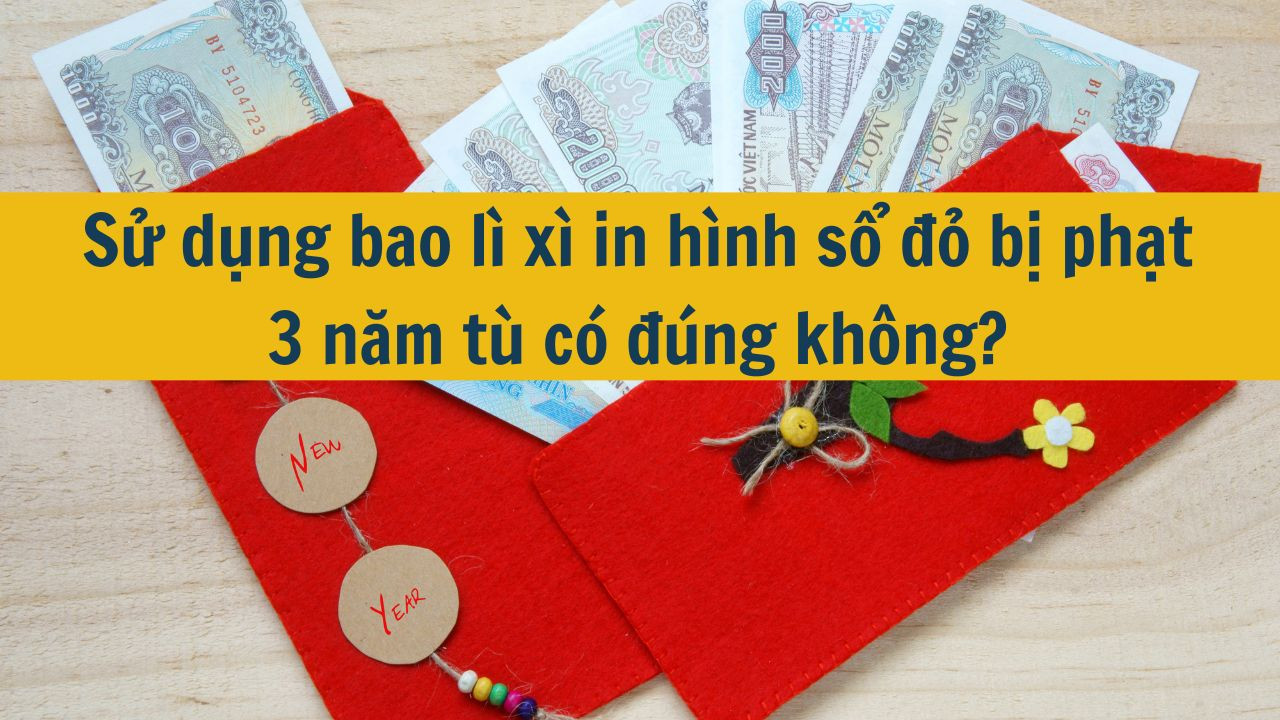
Sử dụng bao lì xì in hình sổ đỏ bị phạt 3 năm tù có đúng không?
Việc tặng lì xì là truyền thống quen thuộc của người Việt mỗi dịp Tết. Gần đây, bao lì xì in hình sổ đỏ trở nên phổ biến, nhưng cũng gây tranh cãi về tính hợp pháp. Liệu sử dụng bao lì xì sổ đỏ có vi phạm pháp luật hay không? 19/11/2024Phân tích các nguyên tắc cơ bản của luật lao động hiện nay ?

Phân tích các nguyên tắc cơ bản của luật lao động hiện nay ?
Nguyên tắc của ngành luật, theo quan niệm của lí luận chung về nhà nước và pháp luật, được hiểu là những nguyên lí, tư tưởng chủ đạo, mang tính xuất phát điểm xuyên suốt toàn bộ quá trình soạn thảo, ban hành, giải thích, thực thi, áp dụng pháp luật. 15/11/2024Sàm sỡ người khác có bị xem là vi phạm pháp luật hay không?

Sàm sỡ người khác có bị xem là vi phạm pháp luật hay không?
Thỉnh thoảng ở nơi công cộng hay nơi làm việc một số bạn, đặc biệt là nữ thường gặp phải những trường hợp bị sàm sỡ, bị quấy rối tình dục bởi những tên “yêu râu xanh” hay chính sếp của mình. Nhiều bạn cảm thấy hoảng loạn, lo sợ và ngại nói ra nhưng không biết phải giải quyết vấn đề này như thế nào? 15/11/2024Những quy định mới về quyền con người trong Hiến pháp năm 2013
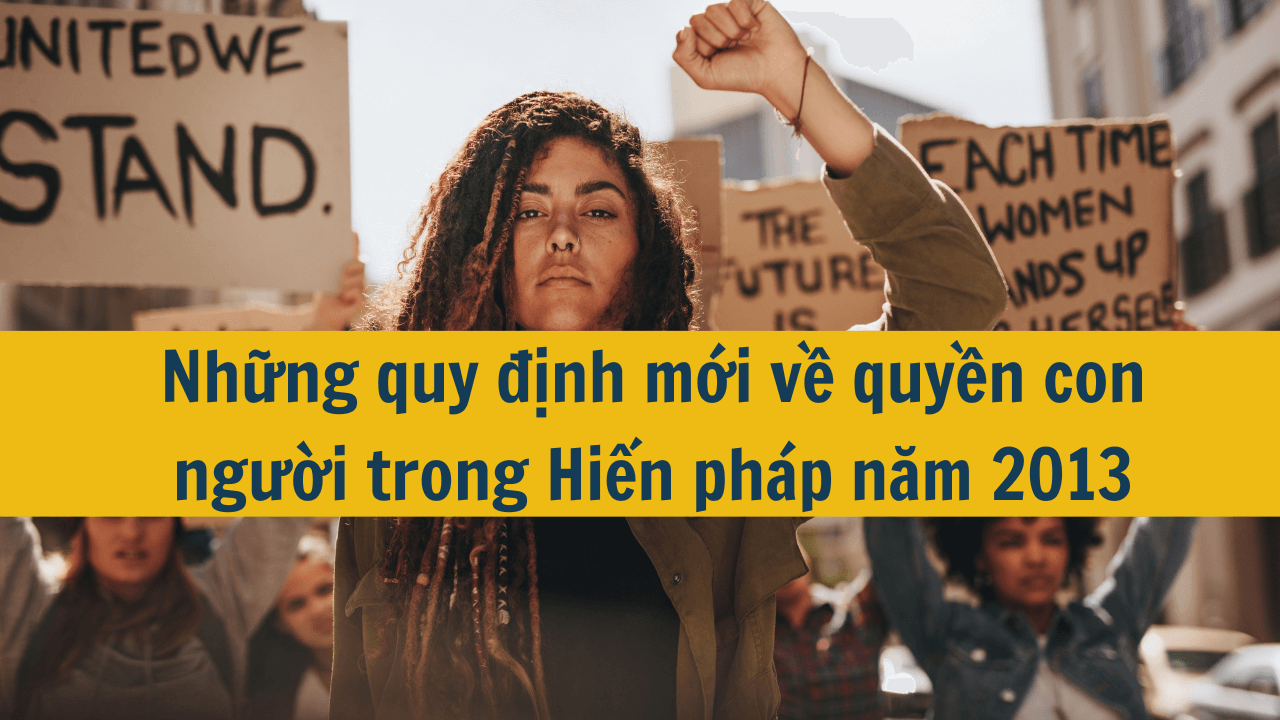
Những quy định mới về quyền con người trong Hiến pháp năm 2013
Hiến pháp năm 2013 đã đặt nền móng cho thời kỳ đẩy mạnh hội nhập quốc tế và phát triển của đất nước ta. So với các bản hiến pháp trước đây, đặc biệt là Hiến pháp 1992, Hiến pháp 2013 có những phát triển mới trong chế định về quyền con người 20/11/2024Quy định pháp luật về quyền chủ tịch nước năm 2024
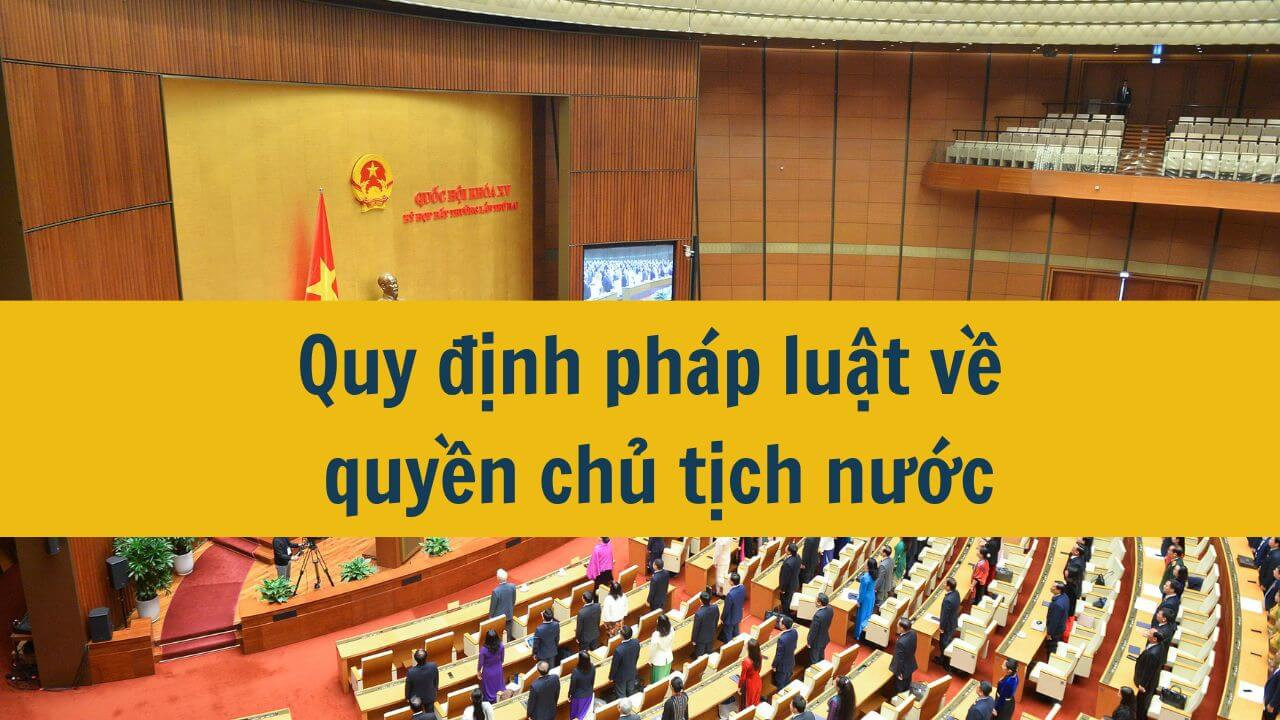
Quy định pháp luật về quyền chủ tịch nước năm 2024
Quyền chủ tịch nước là một khái niệm trong các văn bản pháp luật và thảo luận chính trị. Thực tế trong một số hoàn cảnh nhằm đảm bảo an ninh, ổn định và phát triển của đất nước, cần có người thay Chủ tịch nước giữ quyền Chủ tịch nước. Việc làm sáng tỏ các quy định pháp luật liên quan đến quyền chủ tịch nước sẽ giúp nâng cao nhận thức của người dân về vai trò của Nhà nước trong đời sống xã hội. 12/11/2024Thủ tướng Chính phủ Nước Cộng hòa xã hội chủ nghĩa Việt Nam do ai bầu ra?
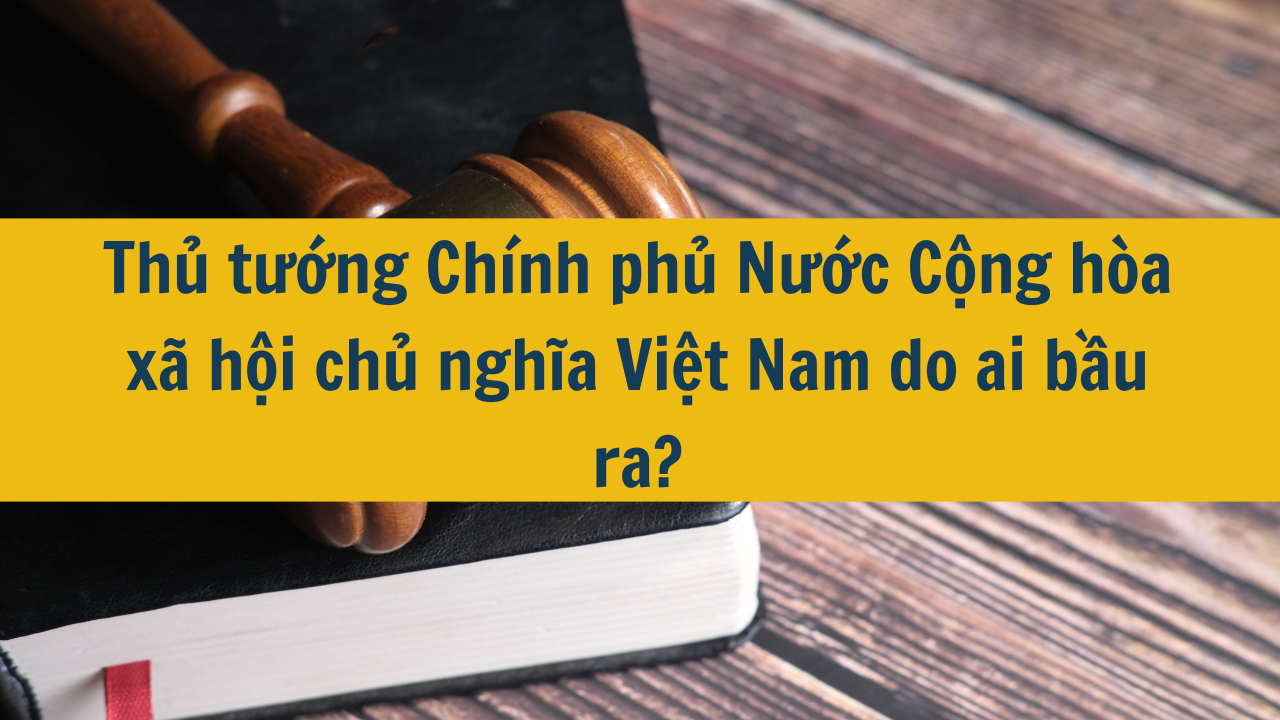
Thủ tướng Chính phủ Nước Cộng hòa xã hội chủ nghĩa Việt Nam do ai bầu ra?
Trong bài viết này, chúng ta sẽ cùng khám phá một câu hỏi quan trọng về hệ thống chính trị Việt Nam. "Thủ tướng Chính phủ Nước Cộng hòa xã hội chủ nghĩa Việt Nam do ai bầu ra?" Qua đó, bài viết sẽ cung cấp cái nhìn tổng quan về quy trình bầu cử Thủ tướng, vai trò của Quốc hội trong việc xác nhận các chức danh lãnh đạo, cũng như ý nghĩa của cơ chế này đối với sự phát triển và ổn định của đất nước. 10/11/2024Cơ cấu tổ chức của Chính phủ nước Cộng hòa xã hội chủ nghĩa Việt Nam? Người đứng đầu Chính phủ là ai?
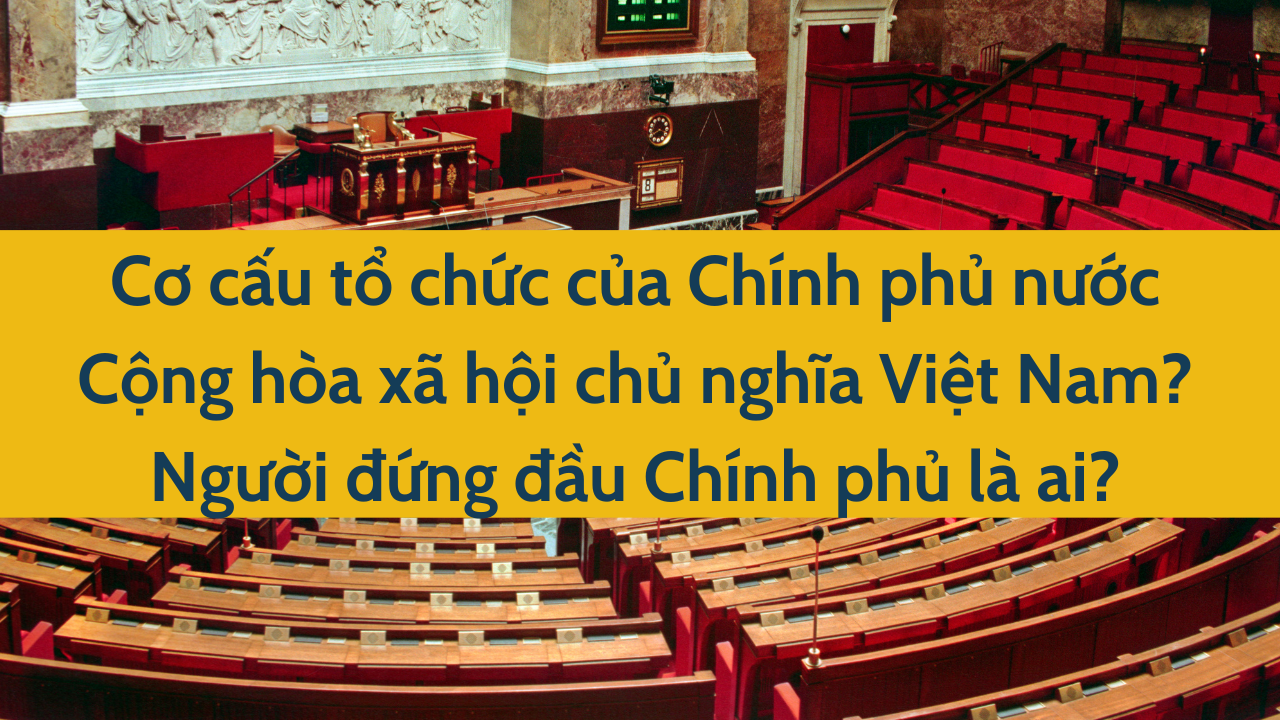

 Hiến pháp 2013 (Bản Word)
Hiến pháp 2013 (Bản Word)
 Hiến pháp 2013 (Bản Pdf)
Hiến pháp 2013 (Bản Pdf)